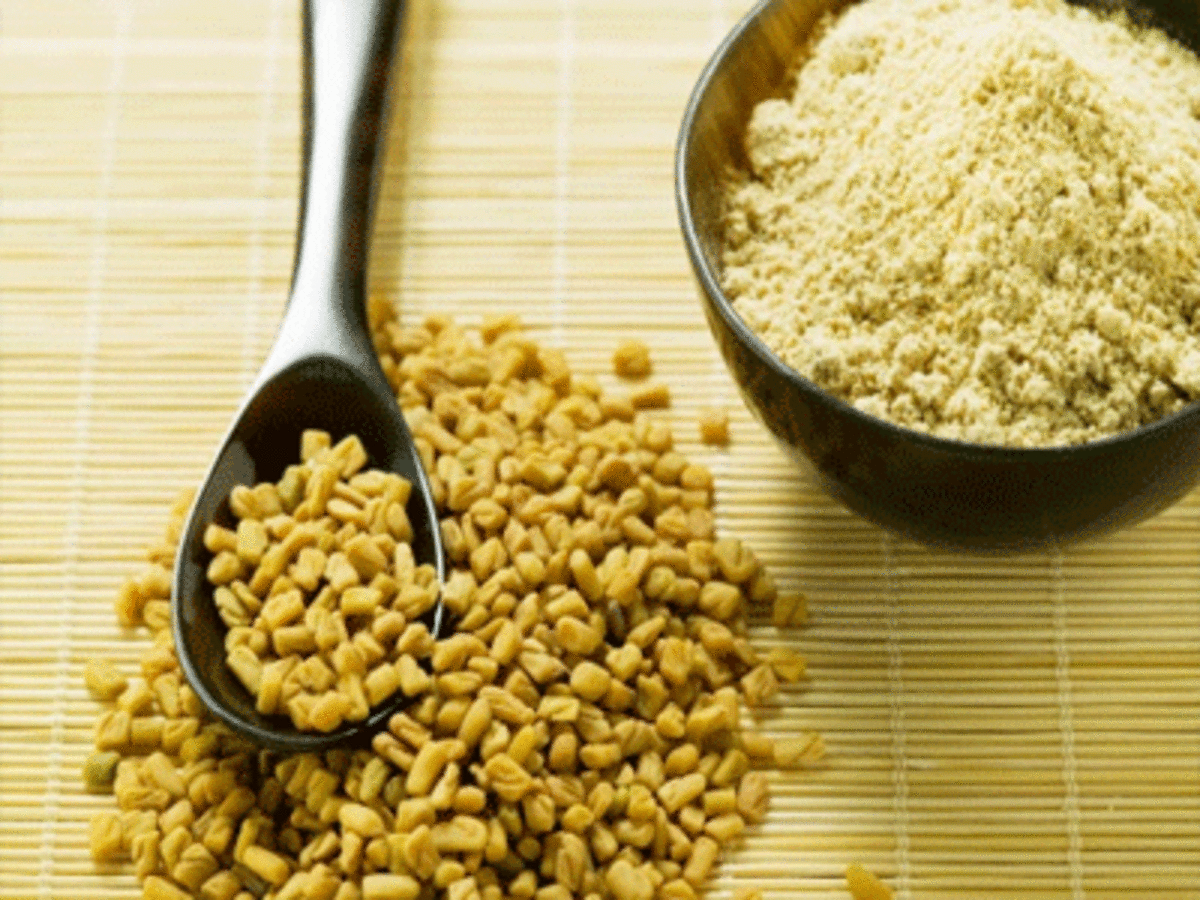Fenugreek, an herb with a rich history, has been used for centuries in various cultures for its medicinal and culinary properties. Whether you’re looking to boost your health, manage certain conditions, or simply enjoy the benefits of this versatile plant, understanding the right dosage is essential. In this article, we’ll dive deep into the topic of “how much fenugreek per day,” providing you with detailed information on the proper dosage, benefits, potential side effects, and more.
Introduction to Fenugreek
What is Fenugreek?
Fenugreek (Trigonella foenum-graecum) is a herb native to the Mediterranean region, Southern Europe, and Western Asia. The plant’s seeds and leaves are commonly used in cooking, while its seeds are also prized for their medicinal properties. Fenugreek is known for its slightly sweet, nutty flavor, which adds depth to dishes like curries, soups, and even teas.
Nutritional Profile of Fenugreek
Fenugreek seeds are rich in nutrients, including:
- Protein
- Fiber
- Iron
- Magnesium
- Manganese
- Vitamins A, C, and B6
- Antioxidants
These nutrients contribute to the herb’s many health benefits, making it a popular choice for those seeking natural remedies and health supplements.
Understanding Fenugreek Dosage: How Much Fenugreek Per Day?
Why is the Right Dosage Important?
Before incorporating fenugreek into your daily routine, it’s crucial to understand the appropriate dosage. The amount of fenugreek you should take per day depends on various factors, including your health goals, body weight, and any underlying medical conditions.
General Guidelines for Fenugreek Dosage
There isn’t a one-size-fits-all answer to “how much fenugreek per day” you should consume. However, general guidelines can help you determine a suitable amount:
- For General Health and Well-being: Taking 1-2 grams of fenugreek seeds per day is considered safe and effective for most people. This dosage can be consumed in capsule form, as a tea, or added to food.
- For Lactation Support: Breastfeeding mothers often use fenugreek to increase milk production. A typical dosage for this purpose is 3-6 grams of fenugreek seeds per day, usually divided into multiple doses.
- For Managing Blood Sugar Levels: Fenugreek is commonly used to help manage blood sugar levels in individuals with diabetes. Studies suggest that taking 5-10 grams of fenugreek seeds per day can be effective in reducing blood sugar levels.
- For Weight Loss: Fenugreek’s high fiber content can aid in weight loss by promoting a feeling of fullness and reducing appetite. A daily intake of 2-5 grams of fenugreek seeds may help with weight management.
- For Digestive Health: To alleviate digestive issues like constipation and bloating, a dose of 1-2 grams of fenugreek seeds per day is generally recommended.
The Benefits of Fenugreek
Supporting Digestive Health
Fenugreek is rich in soluble fiber, which can help improve digestion and prevent constipation. The mucilage content in fenugreek seeds also soothes the gastrointestinal tract, making it beneficial for those with digestive disorders like irritable bowel syndrome (IBS).
Managing Blood Sugar Levels
Fenugreek seeds have been shown to have hypoglycemic properties, making them a popular natural remedy for managing blood sugar levels. The seeds contain soluble fiber, which slows the absorption of carbohydrates and sugars, helping to stabilize blood sugar levels.
Boosting Lactation in Nursing Mothers
One of the most well-known uses of fenugreek is as a galactagogue, a substance that promotes milk production in breastfeeding mothers. Research suggests that fenugreek can increase milk supply within 24-72 hours of consumption, making it a popular choice among nursing mothers.
Aiding in Weight Loss
Fenugreek’s high fiber content makes it an effective aid in weight loss. The fiber helps promote a feeling of fullness, reducing overall calorie intake. Additionally, fenugreek may help regulate metabolism, further supporting weight management efforts.
Improving Heart Health
The fiber, potassium, and other nutrients found in fenugreek contribute to its heart-healthy properties. Fenugreek may help reduce cholesterol levels, lower blood pressure, and improve overall cardiovascular health.
Supporting Hormonal Balance
Fenugreek contains phytoestrogens, which are plant compounds that mimic the effects of estrogen in the body. This can be beneficial for women experiencing symptoms of menopause or hormonal imbalances.
Potential Side Effects of Fenugreek
Common Side Effects
While fenugreek is generally safe for most people, some may experience mild side effects, including:
- Digestive Issues: Fenugreek’s high fiber content can cause bloating, gas, and diarrhea in some individuals, especially when consumed in large amounts.
- Allergic Reactions: Some people may be allergic to fenugreek, particularly those with allergies to peanuts, chickpeas, or other legumes. Symptoms of an allergic reaction may include rash, swelling, and difficulty breathing.
- Maple Syrup Odor: A harmless but unusual side effect of fenugreek is a distinct maple syrup-like odor in sweat and urine. This is due to a compound in fenugreek called sotolon.
Precautions and Contraindications
- Pregnancy: While fenugreek is often used to support lactation, it should be used with caution during pregnancy. High doses of fenugreek may stimulate uterine contractions, potentially leading to preterm labor.
- Diabetes: If you’re taking medication to manage diabetes, consult your healthcare provider before using fenugreek, as it may enhance the effects of your medication and lead to hypoglycemia.
- Medication Interactions: Fenugreek may interact with certain medications, including blood thinners, anticoagulants, and medications that lower blood sugar levels. Always consult your healthcare provider before starting any new supplement.
How to Incorporate Fenugreek into Your Daily Routine
Using Fenugreek in Cooking
Fenugreek seeds and leaves can be used in a variety of dishes, adding a unique flavor and nutritional boost to your meals. Here are some ways to include fenugreek in your diet:
- Spices and Seasonings: Ground fenugreek seeds can be used as a spice in curries, stews, and soups. They add a slightly bitter, nutty flavor to dishes.
- Tea: Fenugreek seeds can be soaked in water overnight and then boiled to make a soothing tea. This is a popular method for those looking to enjoy the health benefits of fenugreek without adding it to food.
- Sprouts: Fenugreek seeds can be sprouted and added to salads, sandwiches, and other dishes for a fresh, crunchy texture.
Taking Fenugreek Supplements
For those who prefer a more convenient option, fenugreek is available in various supplement forms, including capsules, powders, and extracts. When choosing a supplement, be sure to select a reputable brand and follow the recommended dosage on the label.
Frequently Asked Questions About Fenugreek Dosage
Can You Take Too Much Fenugreek?
While fenugreek is generally safe, taking excessive amounts can lead to digestive issues, hypoglycemia, and other side effects. It’s important to stick to the recommended dosage and consult your healthcare provider if you’re unsure.
How Long Does It Take for Fenugreek to Work?
The effects of fenugreek can vary depending on the individual and the purpose of use. For lactation support, some women notice an increase in milk supply within 24-72 hours. For other health benefits, it may take several weeks of consistent use to see results.
Is Fenugreek Safe for Long-Term Use?
Fenugreek is considered safe for long-term use when taken in appropriate doses. However, it’s a good idea to periodically reassess your dosage and consult with a healthcare provider to ensure it remains safe and effective for your needs.
Conclusion: Finding the Right Fenugreek Dosage for You
Determining “how much fenugreek per day” to take depends on your individual health goals and needs. Whether you’re using fenugreek to support digestion, manage blood sugar levels, boost lactation, or improve overall health, it’s important to start with a conservative dosage and adjust as needed. Always consult with a healthcare provider before starting any new supplement, especially if you have underlying health conditions or are taking other medications.
Incorporating fenugreek into your daily routine can offer a range of health benefits, from improved digestion to better hormonal balance. By understanding the proper dosage and potential side effects, you can safely enjoy the many advantages of this powerful herb.













